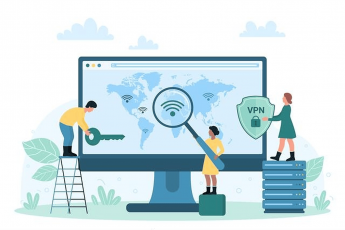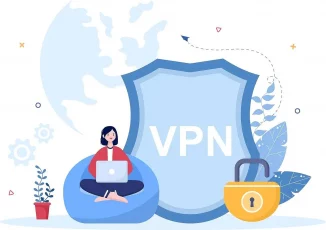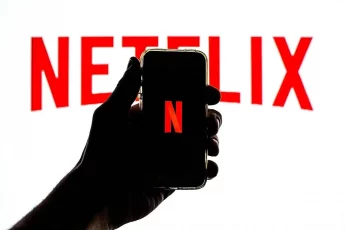A Virtual Private Network, or VPN, is something of a necessity given today’s cybersecurity scenario. Unfortunately, this privacy-oriented tool may also serve as a haven for criminals. That’s why we have to advocate for the legality of VPNs aggressively.
This paradox has expectedly given rise to a question that pops up in every internet user’s mind – are VPNs legal?
And the answer to this may be a ‘yes’ and a ‘no’ at the same time. It’s because of how different countries look at this service. While it’s entirely okay for some countries to let their people use VPNs, others consider it a forbidden sin.
That difference in perspective and the subsequent legislation has confused the users. Hence, this article looks at where, how, and why VPNs are legal in some areas and illegal in others.
- Legitimate streaming platform
- Decent pricing for paid subscriptions
- Impressive library of movies and TV shows
- Perfect for watching new movies free online
- Unavailable outside the US
What makes VPNs useful?
Before discussing whether or not VPNs are legal, let’s take a quick look at how VPNs benefit most users.
Secure corporate networks
Government organizations, large businesses, and other corporate firms remain vulnerable to cyber attacks. If these entities do not apply an additional security layer, like a VPN, they will have to suffer various damages from losing sensitive data to intellectual property.
Facilitate privacy-savvy netizens
From journalists to cybersecurity researchers and the public, VPNs facilitate everyone to protect privacy. These apps prevent them from prying eyes, web trackers, and intrusive ads as they mask their IP addresses.
Protect users on public WiFis
Public WiFis harbor cyber criminals almost always because malicious actors can find a bulk of victims on these unsecured networks. However, using a VPN protects people from interception and cyber attacks when connected to public WiFis.
Prevent eavesdropping and network interception
Cybercriminals can eavesdrop on your communication from VoIP to text messages and calls without much effort. However, since a VPN encrypts all the data, it prevents potential network interception and subsequent eavesdropping.
Evade content restrictions
One of the most common reasons people use VPNs is to unblock websites and access restricted content. That includes accessing geo-restricted Netflix and Hulu content as well as other websites.
While this is not always illegal, it may be a grey practice. Hence, it entirely depends on what type of content you access as a VPN user.
Why do VPNs face bans?

VPNs aren’t generally illegal.
Yet, the services occasionally face numerous restrictions from the governments of different countries.
Usually, a blanket ban in these areas may be attributed to the underlying legislation regarding the crackdown on criminal activities.
Because of their private and stealth operation, criminals use VPNs to execute malicious actions.
Below we quickly list out the various activities that constitute the dark side of VPNs:
- Hacking others’ systems and computer networks
- Malware and ransomware attacks
- Data breaches
- Eavesdropping and cyberstalking
- Illegal file and data sharing
- Distributed pirated content
- IP Spoofing to access blocked content
- Sale/purchase of prohibited articles, weapons, drugs, as well as stolen data
And the list can extend to include many more issues.
Precisely, using VPNs for any illegal, immoral, or prohibited activity makes VPNs questionable.
Hence, the list of countries scrutinizing or banning VPNs is quickly increasing. While this may help the authorities crackdown on criminal elements, it causes problems for all those who use VPNs for legitimate reasons.
Where are VPNs illegal?

Though a few in number, these countries have entirely labeled VPNs as ‘illegal.’
The following countries have constituted strict legislation prohibiting the use of VPNs, violating which may lead to dire consequences:
1. Iraq
Iraq tops the list of those early countries that entirely banned VPNs.
The ban dates back to 2014, when the authorities implemented this step to contain terrorist organizations, mainly ISIS.
Precisely, they wanted to restrict ISIS from manipulating people via social media. Hence, the ban even extended to block various social media apps too.
Since then, severe internet restrictions and censorship rules have been in place. Of and on, the authorities even shut down the internet for various reasons. And this goes on even after wiping off ISIS operations from Iraq.
The latest internet crackdown happened in October 2019 following anti-government protests. This shutdown affected around 75% of Iraq’s population.
In short, Iraq’s legislations entirely declare VPNs as illegal without any exceptions. However, government officials often use VPNs despite the law.
2. Belarus
Belarus is another country with harsh laws for VPN use. The government has strict internet legislation often revolving around users’ tracking. Since VPNs evade such attempts, Belarus has labeled VPN usage as illegal.
For instance, in 2012, Belarus implemented content restrictions and levied a fine of $120 for any attempts to access blocked content. While the blocked content initially included extremist content and pornography, the authorities also restricted other content, such as news agencies.
Then, in 2015, they entirely banned VPNs and other services that facilitate anonymized internet use. These services conflict with another law that came into effect back in 2007. It required all internet cafes to log customers’ identification details and browsing history.
After VPNs, Belarus also blocked Tor in 2016. Hence, making it impossible (on top of being illegal) for anyone to use these services. Violating the laws would lead to unspecified fines.
3. Turkmenistan
The third country not allowing VPNs is Turkmenistan. But before you ask ‘why are VPNs illegal here,’ let us tell you that this country doesn’t particularly hate VPNs. Instead, they generally have very harsh legislation regarding the freedom of the Internet.
To be precise, Turkmenistan currently offers internet services to its users via only 1 ISP!
You read it right. This single entity, Turkmen Telecom, is a state-run ISP that explicitly bans the use of VPNs or proxies. Hence, the entire data remains under surveillance by authorities.
Also, sources reveal that the overall cost of internet packages is way too high for an average person to afford. Therefore, it is an indirect step from the authorities to limit internet use.
4. North Korea
The last country on the list where VPNs are illegal is North Korea. In fact, it’s not about VPNs only; rather, North Korea prohibits access to any foreign content.
These restrictions even apply to foreign diplomats also.
The locals can only use “Kwangmyong” – the country’s internal internet version of the internet.
Besides these brief details, not much information is available about the exact legislation regulating these measures or the fines in case of violations. Thanks to North Korea’s heavy censorship.
Countries marking VPNs as ‘restricted.’

Though, only four countries in the world have marked VPNs as illegal.
Does that mean that the rest of the world allows such services? Are VPNs legal there?
Well, the answer to these questions is somewhat complicated.
While these countries do not explicitly label VPNs as illegal, they do not deal with them as legal services either.
Here we list those countries that do not explicitly mark VPNs as illegal yet restrict their use.
1. China
Apart from the Great Wall of China, the other wall China is known for is the Great Firewall of China!
And to build this wall, China has developed strict laws that prevent foreign elements from intruding on the country’s internet world.
These laws include severe logging, tracking, blocking foreign content, controlling how people use social media, etc.
For instance, in 2015, China amended its Criminal Code rules to include punishments for spreading fake news. Under these rules, a person may face imprisonment anywhere between three and seven years. While the law sounds fine, the problem here is that it does not explicitly define ‘fake news’ here.
Also, China has compelled all IM service providers to ensure identity verification for all their customers. It means customers must use their real names and reveal true identities online, and failing to do that will levy various fines to the service providers. As stated in the Initiatives to Counter Fake News: China,
Where service providers fail to authenticate users’ identities, the competent authorities may order them to rectify their wrongdoings, suspend their businesses, shut down their websites, revoke relevant licenses, or impose a fine of 50,000 to 500,000 yuan (about US$7,500 to $75,000) on the service providers and/or 10,000 to 100,000 yuan (about US$1,500 to $15,000) on the responsible persons.
Likewise, they have developed many similar rules and taken various draconic steps regulating internet use. Not to mention that they have developed their own search engines and social media apps, like Baidu and WeChat.
Given such rules, it’s pretty clear how they treat services like VPNs that conflict with their laws.
Anyhow, it’s not that China deems VPNs illegal. However, what they require from VPNs is to get registered in China while agreeing to their terms and conditions, including VPN logging.
According to the reports, China started implementing this step in 2018 to regulate cross-border operations.
It’s pertinent to note that China has already been blocking Tor since 2012. After that, VPNs were left as the only option to adopt online anonymity. However, the Great Chinese Firewall has hindered this option as well.
And today, using illegal VPNs (all unregistered ones) can levy fines of up to 15,000 yuan (approximately $2200).
2. Iran
Are VPNs legal in Iran? That is just another tricky question.
Unlike Iraq, Iran hasn’t labeled VPNs illegal, but they actively crackdown against these services when needed.
The ban on VPNs by Iran began in 2013 when the country blocked ‘illegal VPN ports’ used to access blocked content.
Since then, people can only use non-government sanctioned VPNs, which often lead to surveillance. Whereas the punishment for using illegal VPNs may extend up to 1 year of imprisonment.
Ironically, the Iran government has also actively participated in developing MTProto – a censorship circumvention tool. Using this tool, people can access blocked apps such as Telegram. Explaining the reason behind this step, the Iranian Minister of Information and Communications Technology, Mohammad-Javad Azari Jahromi, said,
If we do not improve the management of the demand [for circumvention tools], every Iranian will find his or her own particular way to gain access [to blocked websites and apps],
He added,
Then you will be faced with 80 million different paths. How are you going to manage that situation?
(We leave it up to our readers how they interpret this development.)
3. Russia
Like China, Russia has also restricted the use of VPNs by allowing only the ones it approves.
This ban came into effect in 2017 when the State Duma (lower house of the Parliament) passed a bill restricting VPNs to limit extremist content. However, that does not apply to the legitimate use of allowed VPN services.
Until this point, things seem okay. But the problem begins with introducing secondary legislation that monitors freedom of the internet and, indirectly, VPNs.
For instance, in 2016, they introduced the Yarovaya law. Briefly, it’s an anti-terror law that levies punishments of up to 7 years to spread or endorse ‘terrorism’ – a word that the law doesn’t explicitly define.
The government requires telecom firms and ISPs to log users’ data to implement this law. As elaborated by The Guardian,
The legislation obliges telephone and internet providers to store records of all communications for six months and all metadata for three years and help intelligence agencies, decode encrypted messaging services.
Likewise, in 2019, the State Duma approved a ‘Fake News Bill’ that blocks websites promoting misinformation or featuring anti-state content.
To implement such laws, Russia not only bans VPNs but also frequently blocks other encrypted communication services, such as ProtonMail and Telegram.
Russia took this move for the latter after Telegram refused to cooperate and provide decryption keys to the Russian Federal Security Service (FSB) following a 2017 metro bombing. Though, Russia unbanned Telegram apparently after reaching an agreement with Telegram’s founder Pavel Durov.
Yet, the restrictions on VPNs still continue.
4. Oman
Oman is one of those early countries that restricted VPN use. While VPNs are legal here, the authorities only allow the approved VPNs to work.
This ban dates back to 2010 when Oman prohibited VPNs for individuals. It only allowed VPNs to be private and public institutions – that too – after approval.
Whereas violation of rules levies a fine of 500 Omani Rial (almost 1,300 USD) on individuals and 1,000 Omani Rial on companies lacking permits.
This ban came into effect as the government tried to contain censorship bypass and VoIP use. Also, the Sultanate of Oman does not bear any criticism of the Sultan, hence somewhat restricting the freedom of expression.
5. Turkey
Are VPNs legal in Turkey? Certainly yes, but only with restrictions.
Turkey is just another country on this list that banned VPNs to prevent censorship bypass. Also, the country does not allow any criticism of the government.
In 2014, Turkey adopted the Law Amending the Law on State Intelligence Services and the National Intelligence Organization that permitted National Intelligence Agency (Milli İstihbarat Teşkilatı, MİT) to access personal data even without a court order.
The same year, another law empowered the Telecommunications Directorate (Telekomünikasyon İletişim Başkanlığı, TİB) to block websites “without prior court approval.”
This harsh internet regulation in Turkey even extended up to the blocking of Wikipedia, which remained banned for about two and a half years.
Such legislations are still being made as and when needed in an attempt to regulate online content.
For example, in 2019, the country amended its internet regulations to oblige all media providers, such as Netflix and YouTube, to register with the state television and radio regulator RTÜK.
These laws clearly hint at why Turkey blocks VPNs and Tor anonymity networks.
6. United Arab Emirates (UAE)
Just like all the other countries mentioned above, UAE also restricts VPN use, exceptions being the approved ones.
Also, while the UAE does not explicitly oppose VPNs, using VPNs to commit fraudulent activities is a punishable crime in itself. The subsequent fines may range anywhere from Dh500,000-Dh2,000,000.
Aside from monitoring typical crimes, the VPN ban also came into effect due to the region’s heavy content censorship. The country prohibits anti-state or anti-religion content, nudity, online gambling, racism, fraud, and hate speech.
UAE also doesn’t allow VoIP, hence blocking the use of Skype, WhatsApp, and alike. It’s because the authorities wanted to stem financial losses to the telecom sector due to VoIP.
Hence, using VPNs to execute any of these prohibited activities can lead to fines and imprisonment.
7. Uganda
Uganda is one of the recent countries joining the list of nations hating VPNs. The authorities blatantly blocked VPN usage in 2018 when the public vowed to evade social media tax.
Whereas the government imposed the weird tax in an attempt to curb gossip.
Are VPNs legal in my country?

Perhaps, after going through the list of countries that have banned VPNs by law, you might wonder about your country’s policies about VPNs.
So, before you ask ‘are VPNs legal in my region,’ let us tell you some good news. A majority of nations globally have allowed VPN use.
By the word ‘allowed,’ we mean that using VPNs isn’t illegal by law. However, governments can still keep an eye on VPN use whenever necessary.
Despite considering VPNs legal, the following countries aren’t as VPN-friendly as the others. They have notable digital rights restrictions in place.
From surveillance to content censorship, these regions often implement rules that contrast with the purpose of VPNs.
1. Cambodia
While VPNs are legal in Cambodia, it’s also among countries with intense surveillance and censorship in place.
Though this surveillance doesn’t affect social media directly, the country does not allow immoral or anti-government content, for which it employs tracking.
2. Cuba
Cuba apparently has no problem with using virtual private networks or VPNs. But, the region does apply pervasive internet censorship despite the high internet costs.
3. Ethiopia
Ethiopia represses freedom of expression and, thus, freedom of the internet for political purposes.
It doesn’t mark VPNs as illegal. However, it does implement active internet filtering of content critical to the government or promoting terrorism.
4. India
India didn’t have severe restrictions in place in the past. However, following the 2008 Mumbai Bombings, the country changed its regime.
It then took several repressive steps, including selective content filtering, that eventually compelled Reporters Without Borders to list India as an “Enemy of the Internet.”
The government has since been taking restrictive steps due to various political reasons.
Recently, when India scrapped article 370, it imposed the worst internet shutdown in its occupied territory of Jammu and Kashmir. After several months, the government then began restoring the internet with selective filtering and a 2G connection.
However, despite being VPN use completely legal even in Kashmir, India began a crackdown on VPN users in the area upon noticing VPN misuse.
Besides, India has also banned numerous Chinese social media apps following its skirmish with China. Also, it blocked multiple websites that hosted pro-Khalistan content.
In brief, VPNs are completely legal in India. But given the growing censorship, it won’t be a surprise if the nation soon joins the list of Russia, China, or Iran.
5. Indonesia
Like India, VPNs are legal in Indonesia as well. However, this country also employs surveillance and content monitoring to contain violent, disturbing, fundamentalist, or pro-terrorism content.
For instance, in 2016, Indonesia banned Netflix, YouTube, and three other popular platforms for hosting prohibited content. Though, these platforms remain accessible via VPNs.
Besides, the country now bears a history of banning social media apps following the deadly Jakarta riots in 2019.
6. Malaysia
Malaysia once used to be a repressive country with regard to internet censorship.
However, time and again, they iterated their pro-freedom stance regarding internet use. Even in 2011, the then Prime Minister vowed to ensure keeping the internet free.
However, in the following years, until 2018, there were several instances when the government blocked different sites. For example, in 2013, the country’s ISPs blocked YouTube and Facebook media on political grounds.
Nonetheless, in 2018, after the end of the years-long Barisan National rule, the new government announced abolishing laws repressing the freedom of the internet.
However, they still implemented surveillance measures to contain immoral content.
Despite all these measures, VPNs still remain completely legal in Malaysia.
7. Pakistan
In Pakistan, VPNs are legal as they were in the past. However, things have been changing recently as the Pakistan Telecommunication Authority (PTA) asks for VPN registration.
According to PTA, this process has been in vogue since 2010, yet, it recently drew attention in June 2020. Stating the details of this process, PTA’s press release reads,
As per applicable Rules and Regulations, appropriate registration is required from PTA for any mode of communication in which communication becomes hidden or encrypted… Action will be taken only against unauthorized VPNs for terminating illegal traffic, which causes loss to the national exchequer.
Initially, the deadline for registration was June 30, 2020, but PTA later extended this date to September 30, 2020.
For now, the rule applies to VPN registration only. However, it isn’t clear how things would proceed after that. Pakistan authorities have a history of internet censorship that came into the limelight when Pakistan blocked Facebook and YouTube in 2010 and some other websites due to blasphemy.
Since then, Pakistan has multiple times blocked YouTube, Flickr, and other websites due to their strict regulations regarding blasphemy, pornography, anti-state material, racism, violence, and alike.
Even recently, Pakistan banned five online dating apps due to immoral content. Though, PTA is open to reconsidering this decision if the services comply with Pakistan rules.
Around the same time, Pakistan also warned TikTok and Bigo to regulate explicit, immoral, and unlawful content. Also, they have asked YouTube for significant content moderation.
Besides, Pakistan has robust internet filtering in place that blocks several thousands of websites that contain prohibited content. Although, due to generalized filtering, it has also affected some legit websites as well.
Considering this censorship, it’s likely that Pakistan would regulate VPN use. Though, at present, using VPNs is wholly legal and draws no attention for legitimate use.
8. Saudi Arabia
After knowing about UAE, you might wonder, “are VPNs legal in Saudi Arabia?” Well, the answer is ‘yes.’
However, that doesn’t mean that KSA supports the freedom of the internet. It actively monitors users’ online activities and employs content censorship. Predominantly, this censorship revolves around immoral content, anti-government material, or Shia ideology.
Saudi Arabia reroutes all internet traffic through its proxy established at the King Abdulaziz City for Science & Technology (KACST) to achieve these goals. Here, they have implemented a Secure Computing-based filtering system.
The most recent incident of active internet censorship happened after the killing of Jamal Khashoggi, banning foreign news outlets.
So, VPNs are yet legal. However, given the increased surveillance, we can’t be sure when these services will become illegal in the country.
9. The United Kingdom
Using virtual private networks or VPNs is entirely legal in the United Kingdom. Also, the region holds a good reputation regarding the freedom of the internet.
However, it doesn’t mean that they have no internet surveillance; they are part of Five Eyes and 14 eyes. The nation has adopted strict policies to curb immoral content, including pirated content, pornography, violence, etc.
For instance, in 2013, the then PM David Cameroon implemented content filtering to block such content by default.
Likewise, in 2018, a debate arose in the UK regarding the breaking of encryption to prevent such services’ malicious use.
Hence, while VPN usage isn’t a big deal there, VPNs may face some trouble if used for illegal purposes in the future.
10. The United States
The United States does not prohibit VPN use.
Nonetheless, the country also employs heavy internet censorship and surveillance by the NSA PRISM program. This has been so extensive that Reporters Without Borders listed the US and the UK among the ‘Enemies of Internet Freedom.’
Is it safe to use a VPN if my country doesn’t allow It?

Of course not.
If you reside in one of the regions where VPNs are restricted or illegal, you’ll likely be punished for that.
Though, the generally anonymous impression of VPNs may make you think, “how would I be caught using a VPN when I remain anonymous online.”
However, the fact is, you are traceable in these countries. It’s because law enforcement and other authorities apply robust surveillance systems in these regions through which they can detect VPN IPs.
So, even if you use a highly secure and best VPN, the undecipherable data on an anonymous IP will signal the tracking authorities about the VPN use.
And, once caught, you will not only face punishments for using a VPN. But also, you will face more than one charge that would include the purpose you used a VPN for, such as accessing blocked content or using a blocked service.
Though most countries usually limit these laws to the local citizens only. Hence, if you’re a foreigner residing in one of the repressive regions, you may not be at risk. Still, make sure that you use VPNs for legit purposes only.
Conclusion
Here we wrap up our detailed answer to every internet user’s most frequently asked question, ‘are VPNs legal.’
As you have understood by now, using a VPN is not an illegal activity unless a country deems it to be. However, the exploitation of this useful service for malicious purposes has made VPNs’ overall stance questionable.
That’s why different nations have adopted harsh laws to limit or block VPNs for use by their people.
Thankfully, the number of such regions is still deficient. Most countries have no problem with legitimate VPN users despite having harsh rules.
Considering this situation, we may even expect to see a gradual inclination of the repressive nations to use VPNs if every user makes sure to use a VPN for legitimate purposes only.
As the end-user, you need to choose a VPN that respects your privacy and serves the purpose you want to use it for.
If you haven’t used a VPN before, we highly advise you to go through our ultimate VPN guide before making a start.
FAQs
VPNs are generally not illegal in many parts of the world owing to their legitimate uses. VPNs serve numerous good purposes that benefit people from protecting the privacy and circumventing cyber attacks. Hence, apart from the countries employing harsh repressive mass control, VPNs are not illegal anywhere else.
Only four: Iraq, Belarus, North Korea, and Turkmenistan. The rest of the countries have various restrictions in place but do not consider VPNs entirely illegal.
Yes. Norway is among those countries that bear the highest internet penetration rates. Thus, you can be sure that using a VPN is no big deal in Norway.
If your country does not explicitly block VPNs or mark them as illegal, you will face no legal issues while using a VPN. However, ensure you do not use VPNs for immoral or criminal activities. Otherwise, you’ll likely be caught and punished for malicious use sooner or later.






